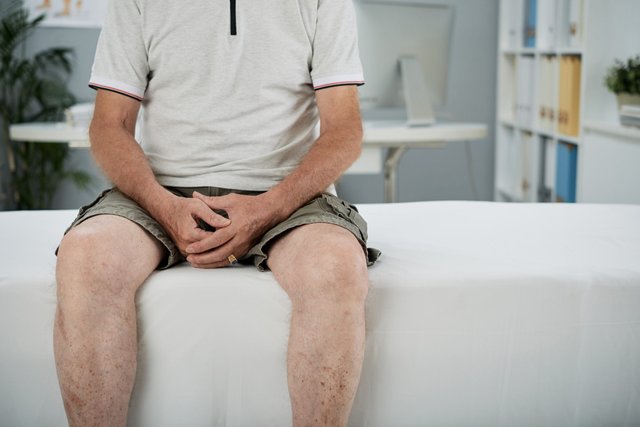Why Do Testosterone Levels Drop After Age 30
Testosterone is one of the most important hormones in the male body. It supports muscle growth, bone density, energy, mood, and even reproductive health. However, many men notice changes in their health and performance after crossing the age of 30. One of the major reasons for this shift is the natural decline in testosterone levels.
We are going to look at why this happens, what factors affects testosterone levels, and how men can recognize and address these changes.
Natural Decline with Age
Testosterone production reaches its peak in the late teens and early twenties. After the age of 30, there is usually a gradual decline of about one percent per year. While this might not seem significant, the cumulative effect over a decade or more can bring noticeable changes in energy, muscle mass, and mood.
This decline is part of the body’s natural aging process. The testes produce less testosterone, and the brain signals that regulate hormone release become less effective over time.
Lifestyle Factors
Apart from age, lifestyle choices play a big role in how testosterone levels change. Lack of sleep, poor diet, and physical inactivity can speed up the decline. Excess body fat, particularly around the abdomen, also contributes because fat tissue increases the conversion of testosterone into estrogen.
Alcohol consumption and smoking further disrupt hormone balance. These lifestyle-related factors affects testosterone levels more strongly in men after 30 because the natural production is already slowing down.
Medical Conditions
Certain medical conditions can reduce testosterone at a faster rate. Diabetes, high blood pressure, and obesity interfere with hormone regulation. Sleep apnea, thyroid disorders, and chronic stress also lower testosterone production.
Some medications, especially those used for depression, high cholesterol, or pain management, may reduce testosterone as a side effect. These issues combined with aging make the decline more noticeable.
Stress and Mental Health
Cortisol, the stress hormone, has a direct impact on testosterone. High levels of stress lead to higher cortisol production, which suppresses testosterone release. Mental health concerns such as anxiety and depression can make matters worse by disturbing sleep patterns and lowering overall hormone stability.
Managing stress through relaxation techniques, exercise, and balanced sleep can reduce this negative impact.
Dietary Impact
The food men eat has a direct connection to testosterone. Diets low in protein, vitamins, and minerals can weaken hormone production. Zinc and Vitamin D are particularly important for maintaining healthy levels.
Excess sugar and processed foods can increase insulin resistance, which then affects testosterone regulation. Maintaining a balanced diet rich in whole foods supports better hormonal balance even as men age.
Physical Activity
Exercise, especially strength training, has a positive effect on testosterone. Men who stay physically active tend to maintain better hormone levels compared to those who are sedentary. On the other hand, lack of exercise accelerates muscle loss and fat gain, both of which affect testosterone.
Excessive endurance training without proper rest can also reduce levels because the body is under constant stress. Finding a balance is key.
Signs of Declining Testosterone
Men may start noticing fatigue, reduced strength, mood swings, and lower libido as testosterone declines. Hair thinning, weight gain, and difficulty concentrating can also be linked to low levels.
Since these symptoms can also be caused by other health conditions, medical testing is the only way to confirm testosterone deficiency.
Conclusion
The drop in testosterone after 30 is a natural process, but lifestyle and health factors make the decline more pronounced. Aging, poor diet, lack of exercise, stress, and certain medical conditions are major reasons for low testosterone. Recognizing how each of these factors affects testosterone levels can help men take practical steps to slow down the decline.
By maintaining a healthy lifestyle and addressing underlying conditions, men can manage this change effectively and preserve better energy and vitality as they age.
